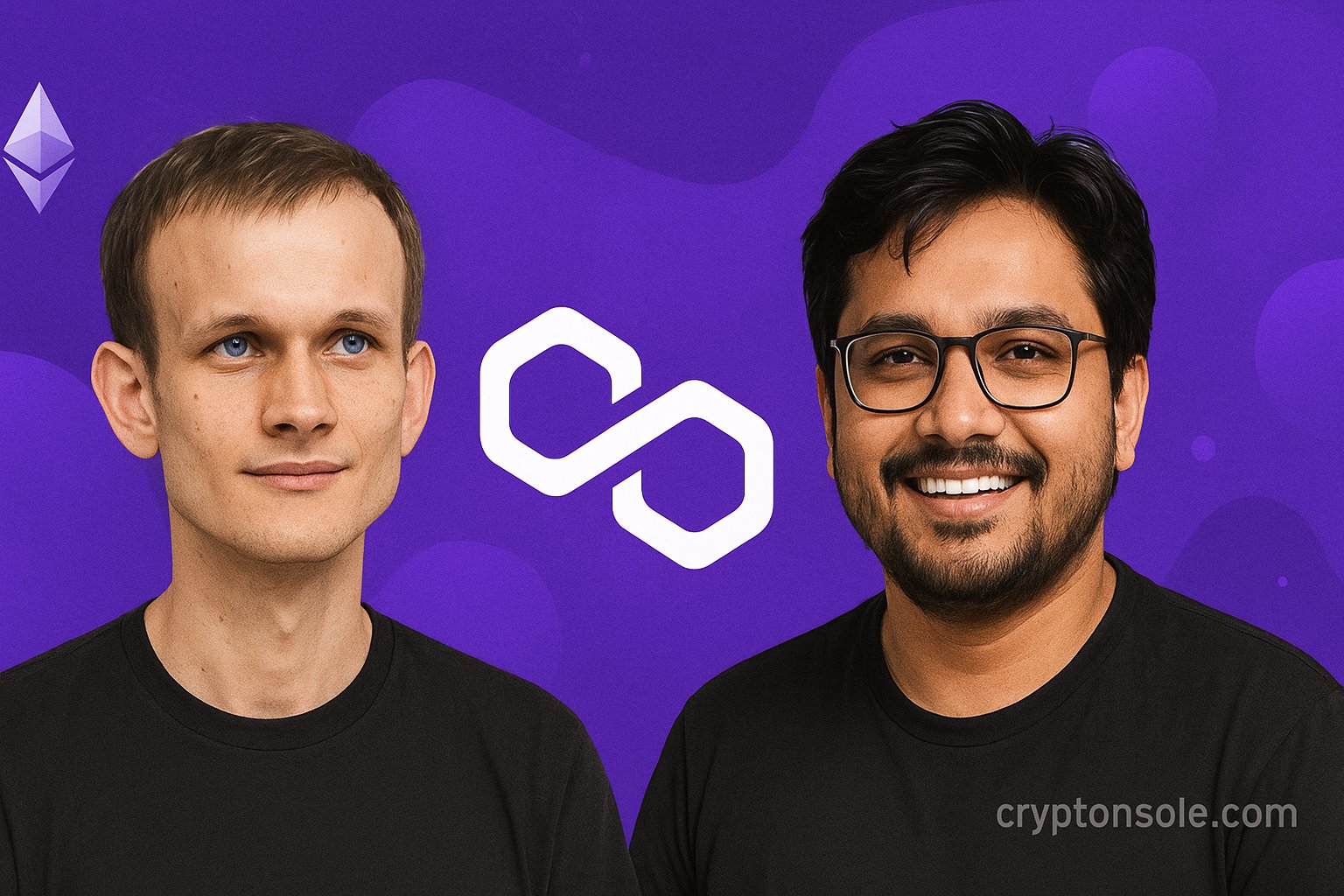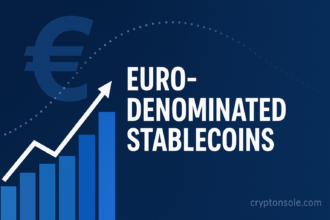Ethereum co-founder Vitalik Buterin publicly praised Polygon and co-founder Sandeep Nailwal for their contributions to the Ethereum ecosystem — highlighting Polygon’s early investments in ZK-EVM work, Jordi Baylina’s developer teams and infrastructure such as the AggLayer. In a post on X, Buterin also commended4 Nailwal for his role in pandemic-relief philanthropy, noting that Nailwal “voluntarily returned $190M of proceeds” from SHIB-related donations and helped fund open-source pandemic research projects run through the Balvi initiative. Buterin said he hopes Polygon will adopt “mature ZK technology” to bring full validity/security guarantees to its PoS chain.
What Vitalik said (and where)
Buterin’s remarks appeared on his X account, where he explicitly acknowledged Polygon’s early support for zkEVM development, referenced8 Jordi Baylina’s contributions and the work on aggregation/cross-chain infrastructure (AggLayer). He also noted Nailwal’s pandemic-relief work and the return of SHIB proceeds that helped support Balvi-funded open research. The post framed Polygon’s ZK efforts as important for Ethereum’s scaling roadmap while urging that Polygon PoS adopt mature ZK proofs to achieve stronger security guarantees.
Why the praise matters
- Technical validation of ZK efforts: Polygon Labs’ engineering on zkEVM provers and the AggLayer (an aggregation/settlement concept for ZK proofs) represents a major technical pathway for scaling and cross-chain interoperability; recognition from Vitalik signals high-level acceptance of these engineering directions.
- Ecosystem cohesion: Public praise from an Ethereum founder helps bridge community narratives around L1/L2 co-existence and may encourage developers and projects to collaborate across the Polygon/Ethereum stack.
- Reputational boost for Polygon leadership: In light of recent leadership and roadmap changes at Polygon — including the foundation leadership shift and renewed focus on AggLayer and Polygon PoS — that endorsement strengthens Polygon’s legitimacy in the broader Ethereum developer community.
The technical angle: zkEVM, Type-1 provers and AggLayer
Polygon has published technical work showing progress on a Type-1 zkEVM prover (a high-compatibility prover capable of proving real EVM execution) and promoting the AggLayer concept to aggregate proofs and connect chains securely. Polygon’s Type-1 work aims to allow existing EVM chains to become ZK L2s without code changes and to reduce proof costs markedly — developments that align with the kind of “mature ZK technology” Vitalik said he hopes Polygon will adopt for stronger security guarantees on PoS.
Philanthropy, SHIB and Balvi: context
Vitalik’s original SHIB donation (2021) and the subsequent flow of funds into pandemic-relief and research projects have been well documented. Buterin and others have channelled crypto grants into the Balvi philanthropic vehicle to fund open-source research (airborne disease research and related projects). In his post, Vitalik singled out Nailwal’s role in returning proceeds from SHIB-related donations (reported as ~$190M in Buterin’s comment) and in supporting Balvi-funded4 open science — actions that, according to Buterin, helped enable funding for anti-pandemic work. Independent reporting and project press releases have documented Balvi grants to universities and open research projects.
Reaction and implications
- Developers & builders: Vitalik’s endorsement of Polygon’s ZK engineering may accelerate developer interest in Polygon tooling (CDK, zkEVM prover, AggLayer) and facilitate integrations that expect higher assurance ZK primitives.
- Investors & partners: Recognition of the AggLayer and Type-1 advances could make Polygon’s interoperability offerings more attractive to projects seeking secure, low-cost proofs and cross-chain settlement.
- Community governance: Public praise helps defuse some critiques that have circulated about the Polygon ecosystem’s direction, though questions about execution, resource allocation, and road-map changes remain in community conversations.
What to watch next
- Polygon’s roadmap execution: Will Polygon ship the Type-1 prover and AggLayer upgrades to production with robust audits and third-party verification? That will be key to delivering the security guarantees Vitalik referenced.
- Adoption of ZK security on PoS: Polygon’s stated intention to move PoS work toward ZK-based validity guarantees will be a multi-quarter effort requiring cross-team coordination and ecosystem buy-in.
- Further philanthropy disclosures: If Balvi and related0 philanthropic flows continue to support open-science initiatives, expect further announcements about grant recipients and project outcomes.
Bottom line:
Vitalik Buterin’s public recognition of Polygon’s ZK work, Jordi Baylina’s development teams and Sandeep Nailwal’s philanthropic actions is a noteworthy signal for the Ethereum-Polygon axis. Buterin’s call for Polygon to move to “mature ZK technology” underscores the ecosystem’s next technical4 phase: combining scalability with provable, ZK-backed security guarantees for chains such as Polygon PoS.
K6YA3SQG












